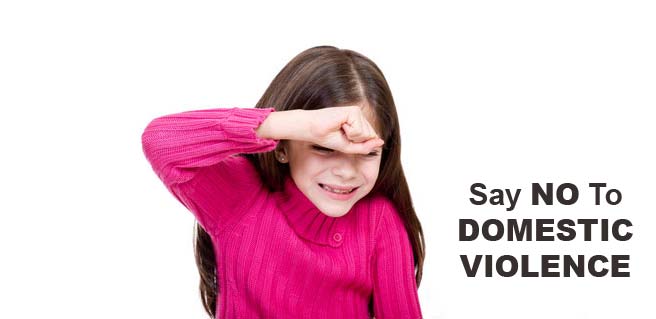Longitudinal study finds babies under 2 may be most at risk for long-term cognitive deficits.
Children exposed early in life to interpersonal trauma (maltreatment or witnessing partner violence against their mothers) have lower IQ-related scores at 2, 5 and 8 years of age, find researchers at Boston Children’s Hospital and the Institute of Child Development at the University of Minnesota. This deficit was highly significant after controlling for other strong predictors like socioeconomic status, the mother’s IQ, birth weight, birth complications and the amount of cognitive stimulation received at home.
On average, children with such trauma exposure had cognitive scores that were about half a standard deviation lower than those not exposed – the equivalent of 7 IQ points. This effect is at least as great if not greater than the effects noted for lead exposure, says study leader Michelle Bosquet Enlow, PhD, in the Department of Psychiatry at Boston Children’s Hospital.
You can think of trauma as an environmental toxin similar to lead,” Bosquet Enlow says. “Just as we need to eradicate lead exposure to protect IQ, we hope our results will spur efforts to identify families at risk and intervene to prevent this from happening. Maltreatment and violence exposure tend to be seen as criminal justice or social service issues, but they’re also important public health issues.”
The most significant and enduring cognitive deficits were in children exposed to trauma between birth and 2 years of age. “This is a very vulnerable time, when brain development is most rapid and thus particularly susceptible to the effects of environmental exposures, like violence. This is also the time when children are very needy and most likely to be abused,” says Bosquet Enlow. “Those first two years have to be looked at very carefully.”
The study, published online April 3rd by the Journal of Epidemiology and Community Health, was the first to examine the effects of trauma prospectively, starting from birth and assessing the same children repeatedly over time. Earlier studies have largely relied on retrospective reports and have tended to draw their samples from child protection and mental health records.
Bosquet Enlow and colleagues at the University of Minnesota followed 206 children in low-income families whose mothers were enrolled while receiving prenatal care for a first baby, as part of the long-term Minnesota Longitudinal Study of Parents and Children. After birth, their children were monitored for maltreatment (physical, psychological or sexual abuse, or neglect) and exposure to domestic violence: Trained researchers observed the mothers and children at home at 7 to 10 days and 3, 6, 9 and 12 months of age, and observed and videotaped them in a laboratory at 9, 12, 18, 24, and 42 months.
Researchers also conducted multiple interviews with mothers throughout and reviewed medical and child protection records at 24 and 64 months.
IQ measures were assessed via the Bayley Mental Development Scale at 2 years and short form versions of the Wechsler Preschool and Primary Scale of Intelligence (WPPSI) at 5 years, and at 8 years via the Wechsler Intelligence Scale for Children-Revised (WISC-R).
By 5 years of age (64 months), 37 percent of children had experienced some form of interpersonal trauma, with 5 percent exposed only in infancy (0-24 months), 13 percent only in preschool (24-64 months) and 19 percent in both infancy and preschool.
Children exposed in infancy had cognitive scores that were lower at all ages tested. For example, at age 2, they had average developmental scores of 90 on the Bayley scale, versus 106 among 2-year-olds with no exposure. At age 8, on the WISC-R, children exposed to trauma in infancy had average scores of 95, versus 107 for those never exposed.
Other statistically significant predictors of lower cognitive scores were male sex, lower birth weight, lower maternal IQ, lower socioeconomic status and less cognitive stimulation in the home, but when these factors were controlled for, exposure to interpersonal trauma from birth to 24 months was still associated with an IQ score that was on average 7.25 points lower across all ages of testing.
The study was not large enough to separate the effects of different types of maltreatment or violence exposure. It was also limited to low-income mothers, although Bosquet Enlow notes that focusing on a low-income cohort makes the findings relevant for a population that is more at risk
Bosquet Enlow hopes her results will encourage pediatricians to be alert to the possibility that a child is being abused or neglected or is witnessing violence. “If we wait until children are identified by the school,” she says, “a lot of the damage will have already been done.”
The study was funded by the Maternal and Child Health Service, the William T. Grant Foundation and the National Institute of Mental Health. Co-authors were Byron Egeland, PhD, of the University of Minnesota; Emily Blood, PhD of Boston Children’s Hospital; Robert O. Wright, MD, MPH, of Boston Children’s Hospital; and Rosalind J. Wright, MD, MPH, of the Harvard School of Public Health (senior author).
Boston Children’s Hospital is home to the world’s largest research enterprise based at a pediatric medical center, where its discoveries have benefited both children and adults since 1869. More than 1,100 scientists, including nine members of the National Academy of Sciences, 11 members of the Institute of Medicine and nine members of the Howard Hughes Medical Institute comprise Boston Children’s research community. Founded as a 20-bed hospital for children, Boston Children’s today is a 395 bed comprehensive center for pediatric and adolescent health care grounded in the values of excellence in patient care and sensitivity to the complex needs and diversity of children and families. Boston Children’s also is the primary pediatric teaching affiliate of Harvard Medical School. For more information about research and clinical innovation at Boston Children’s, visit: https://vectorblog.org.
Source: Boston Children’s Hospital

